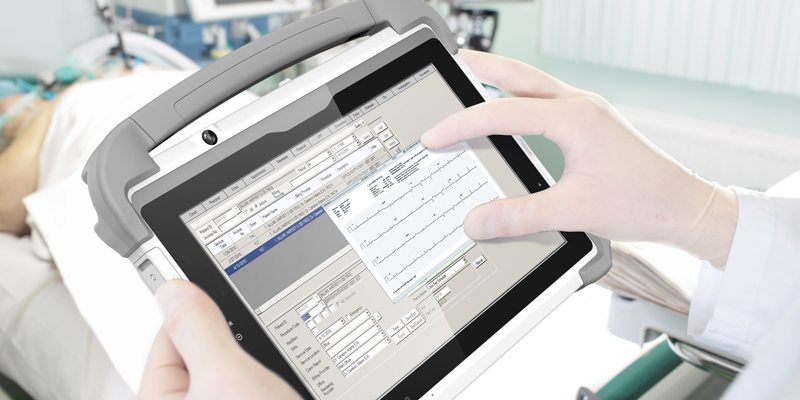
Rugged tablets are designed with industrial applications in mind, but the healthcare field has found a use for them as the pandemic hit the entire world. With a flexible system easy to integrate with healthcare applications, medical-grade tablets helped doctors, nurses, and other practitioners do their jobs more efficiently and accurately.
Medical rugged tablets have revolutionized the healthcare industry, allowing for faster and more convenient responses in service times. Let’s take a look at how medical tablets have changed the healthcare industry:
Patient Records
The days of keeping records with ink and paper are long gone. Some healthcare practitioners are still moving patient information from paper to computer, but this is time-consuming and leads to clerical errors. Directly entering data into a computer at the time of the patient visit is the most effective way to record patient information.
Because they can easily be transferred from room to room, medical rugged tablets are a viable alternative for electronic medical record keeping. They also have a touchscreen and an on-screen keyboard or detachable keyboard, which can help with data entry. Rugged tablets are also resistant to the inevitable drops and they can also be sprayed and cleaned in between patient visits, but do not require it with the antimicrobial enclosure they come with.
Medication Management
A rugged tablet can be used to display a patient’s current prescriptions, allergies, and medical history to their doctor. This can assist the doctor in promptly ordering the appropriate medication, which is crucial in an emergency. Many rugged tablets include barcode scanners built right into the housing, which can be utilized for medication administration utilizing barcodes (BCMA).
A review of BCMA explains that BCMA systems reduce medication errors by electronically verifying the ‘5 rights’ of medication administration—right patient, right dose, right drug, right time, right route—at the patient’s bedside.
The patient’s bracelet, the nurse’s badge, the medication, the paperwork, medical devices, and more can all be scanned with barcode scanners. Because most PCs and tablets lack barcode readers, a two-piece system or medical cart must be transported from room to room. The barcode scanner, RFID, camera, and other peripherals can all be integrated into a rugged tablet, making the system more useful and reliable.
Emergency Medical Services
There is no time to be concerned about sensitive equipment in an emergency medical crisis. If you set your tablet down too hard, you don’t want to worry about it shattering. Water resistance is also useful for emergency services. Weatherproof medical tablets can tolerate rain, humidity, heat, and cold. On a cold day, if you use a consumer-grade tablet in a tough case, the tablet may accumulate condensation. Rugged tablets can also have RFID/NFC readers, front and/or back cameras, smart card readers, and MIL-STD durability making them an excellent choice for EMS.
As we move forward, the health industry must adapt to new technologies — old technology must be abandoned to make way for new, more robust technology. Power and mobility, resistance to microorganisms and water, medical certifications to safeguard the patient, and simple, intuitive use should all be features of the best medical tablets for healthcare.
DT Research offers medical-grade tablets and healthcare-focused solutions to all types of healthcare facilities and settings. We provide a wide range of medical tablets in a number of sizes with features to meet the demands of many hospitals, healthcare facilities, or medical equipment providers.

